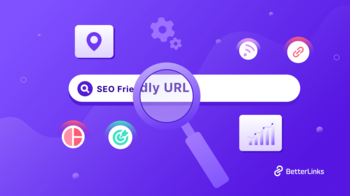URL SEO: How to Create SEO-Friendly URLs

Creating SEO-friendly URLs is an essential aspect of optimizing your website for search engines. A well-structured URL can help search engines understand the content of your page and improve your chances of ranking higher in search results. Here are some tips to help you create SEO-friendly URLs:
1. Use Descriptive and Relevant Keywords: Incorporate descriptive and relevant keywords in your URLs. This helps search engines and users understand what the page is about. For example, instead of using a generic URL like "website.com/page1," use a more specific and keyword-rich URL like "website.com/real-estate-tips."
2. Keep it Short and Concise: Short URLs are easier to read and remember, both for users and search engines. Aim to keep your URLs concise and focused. Avoid using long, complicated URLs that might confuse both search engines and users.
3. Use Hyphens to Separate Words: When including multiple words in your URL, use hyphens to separate them instead of underscores or spaces. Hyphens are more search engine-friendly and help the readability of the URL. For example, use "website.com/real-estate-tips" instead of "website.com/real_estate_tips" or "website.com/RealEstateTips."
4. Avoid Dynamic Parameters: Try to use static URLs instead of dynamic ones that include parameters or query strings. Static URLs, such as "website.com/real-estate-tips," are cleaner and easier to understand for both search engines and users. If dynamic URLs are necessary, consider using URL rewriting techniques to make them more user-friendly.
5. Exclude Stop Words: Stop words are common words like "a," "the," "and," or "of" that add no significant value to the URL. Exclude stop words from your URLs to keep them concise and focused on the most important keywords. For instance, use "website.com/buy-house-guide" instead of "website.com/the-ultimate-guide-to-buying-a-house."
6. Optimize for Readability: Make sure your URLs are easy to read and understand by humans. Use lowercase letters, avoid excessive punctuation or symbols, and structure your URLs logically to convey the hierarchy of your website. Clear and readable URLs are more likely to be clicked on and shared by users.
7. Include Targeted Keywords: Incorporate targeted keywords in your URLs. This can help search engines understand the relevance of the page to specific search queries. However, be cautious not to overuse keywords or make the URL sound unnatural. Balance keyword inclusion with readability.
8. Implement Proper Redirects: If you need to change a URL, make sure to implement proper redirects, such as 301 redirects. This ensures that both users and search engines are directed to the new URL, preserving any existing search engine rankings and avoiding broken links.
9. Consider Localization: If your website targets different countries or languages, consider implementing language or country-specific URLs. This can help search engines understand the intended audience for each page and improve your visibility in local search results.
10. Monitor and Analyze: Regularly monitor and analyze the performance of your URLs in search engine rankings and user behavior metrics. Identify any issues or opportunities for improvement and make adjustments accordingly. Use tools like Google Analytics to track the organic traffic and engagement levels of your URLs.
By following these tips, you can create SEO-friendly URLs that improve your website's visibility in search engine results and enhance the user experience. Remember that SEO is an ongoing process, so regularly review and optimize your URLs as part of your overall website optimization strategy.
2024-03-29 21:03
nice!(0)
コメント(0)




コメント 0